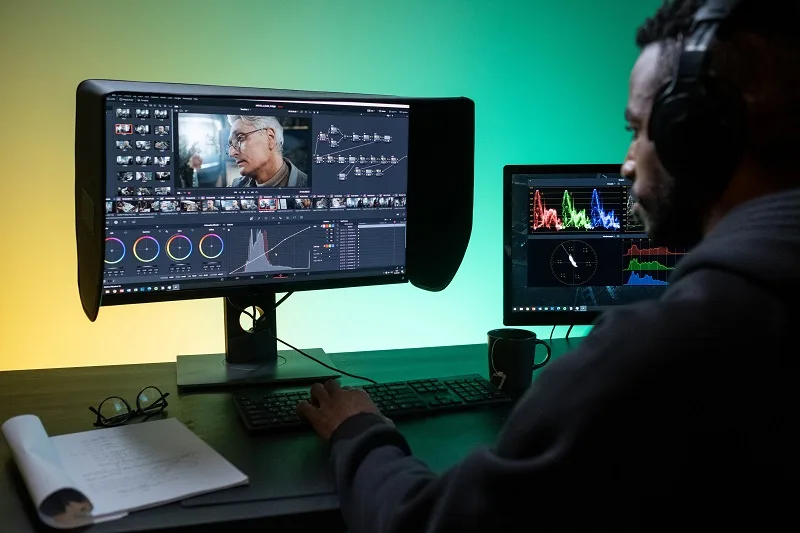Turning Video Editing Skills into a Profitable Venture

The art of video editing has surged in popularity, thanks to the exponential growth of digital content across social media, streaming platforms, and advertising. This skill is not just about cutting and merging clips; it’s about storytelling, creating compelling narratives that capture and retain the audience’s attention. As the digital landscape expands, so does the demand for skilled video editors. This article explores the reasons behind the popularity of video editing, who requires these skills, essential software, the learning curve, profitability, and the future prospects of video editing as a career.
Why video editing has become so popular now
Video content has become the backbone of digital marketing and entertainment, driven by the voracious appetite of consumers for engaging, high-quality videos. The shift towards video has been fueled by the effectiveness of visual storytelling in conveying messages more powerfully than text or images alone. Moreover, the proliferation of user-friendly video platforms has democratized content creation, enabling anyone with a camera and editing software to share their stories with the world.
Who needs such work skills
Video editing skills are in high demand across various sectors. Digital marketers, content creators, film and documentary makers, advertising agencies, and corporate communications departments all seek proficient video editors. These skills are crucial for creating content that stands out in a crowded digital space, from viral marketing campaigns to captivating corporate training videos.
What programs are needed for this
Several video editing programs cater to different skill levels, from beginner to professional. Adobe Premiere Pro, Final Cut Pro, and DaVinci Resolve are among the top choices for professionals, offering a range of advanced features. For beginners, software like iMovie and Adobe Premiere Rush provides a more accessible entry point, allowing novice editors to create quality videos without overwhelming complexity.

How difficult it is
Learning video editing can be challenging, but it’s accessible to those willing to invest the time. The difficulty lies in mastering the software and understanding the principles of good storytelling. However, with abundant online tutorials and courses, self-directed learners can rapidly improve their skills. Persistence and practice are key to overcoming the initial learning curve.
How profitable this work is
Video editing can be highly lucrative, with income varying based on skill level, experience, and the market’s demand. Freelancers can command attractive rates for projects, while full-time positions offer stable income and benefits. As brands and creators continue to invest in video content, the demand for skilled editors shows no signs of waning, making it a rewarding career choice for the creatively inclined.
Further perspective
The future of video editing looks promising, with emerging technologies like VR and AR adding new dimensions to storytelling. The ongoing demand for video content across all digital platforms suggests that video editing skills will remain valuable. For those looking to enter the field, staying abreast of the latest trends and technologies will be key to carving out a successful career in video editing.
